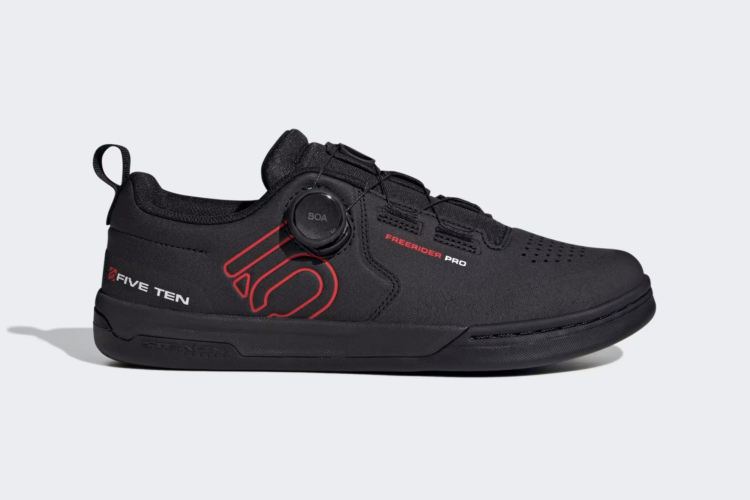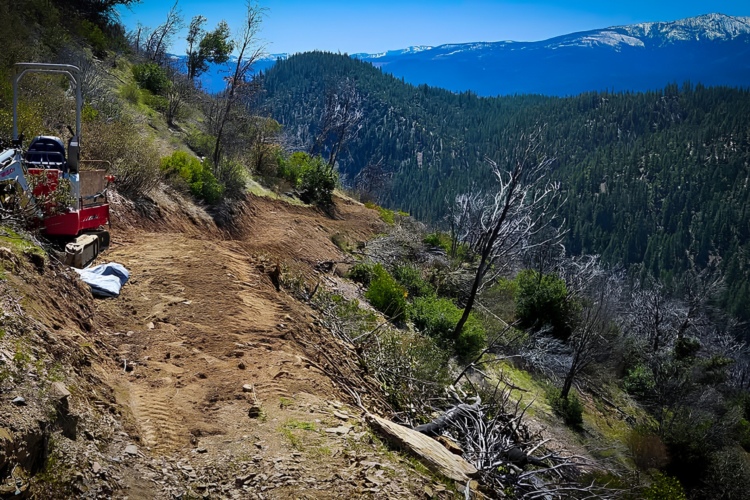Hey gram counters: how’d you like to shave a couple pounds off your 29er mountain bike with a single upgrade? After putting the Syncros FL Carbon 29er fork through its paces on the trail I’m ready to fill you in on the details, talk about performance, and award style points.
The Deets
The Syncros FL Carbon mountain bike fork weighs just 1.25 pounds (580 grams) compared to 3.5+ pounds for the lightest 29er suspension forks available. Heck, this fork still weighs about half what you’d expect from a rigid steel version! It’s not the lightest carbon 29er fork available but it’s pretty dang close (we’re talking grams).
Unlike other rigid carbon forks, the Syncros FL Carbon is full-on carbon fiber from the steerer to the crown to the drop outs and brake tabs. The crown and steerer assembly is a full monocoque which means it’s essentially built up as a single piece for exceptional strength and durability. In fact Syncros says there’s no rider weight limit for this fork – how’s that for strength confidence?
To some a rigid mountain bike fork might seem like a throwback but this fork features a completely modern design. Aside from the carbon construction, the Syncros Carbon FL fork plays nicely with fat tires (2.4+) and only works with disc brakes (truly old-school V-brake aficionados will need to look elsewhere). The brake mounts are International Standard (IS) so if you’re upgrading you may need to pick up the appropriate adapter. We’ve also heard there’s no maximum rotor size on the FL Carbon which would make it unique among rigid carbon 29er forks.
Another thing that makes the FL Carbon design unique is the offset (or rake): just 38mm. The offset is basically the distance between the center of the dropouts and the steering axis and is one of three factors that determine a bike’s “trail.” So, holding a bike’s head angle and tire diameter constant, a shorter offset increases trail which improves stability on the bike (but decreases handling precision). By comparison, Niner’s carbon fork has a 45mm offset while the XRR470 from DT Swiss has a 41mm offset.
On the Trail
It’s been a long time since I’ve put in serious saddle time on a rigid mountain bike – like 12 years. It’s hard to imagine a time when even the most entry level bike didn’t come with a squishy fork but believe it or not, it’s still possible to get rad on a rigid mountain bike! Though to be honest I was a little worried at first…
 Ok, so here’s where the specs meet the trail and it all starts to make sense. The cool thing about carbon fiber is that designers can influence characteristics like stiffness and compliance based on the way the fibers are laid out. The upshot: I found the FL Carbon is tuned so it’s not overly harsh on the trail yet it’s still strong enough to stand up to serious abuse. Still, make no mistake – this is a stiff, rigid fork. After just a few rides I needed to re-tighten most of the bolts on my stem and bar attachments to eliminate all the chatter.
Ok, so here’s where the specs meet the trail and it all starts to make sense. The cool thing about carbon fiber is that designers can influence characteristics like stiffness and compliance based on the way the fibers are laid out. The upshot: I found the FL Carbon is tuned so it’s not overly harsh on the trail yet it’s still strong enough to stand up to serious abuse. Still, make no mistake – this is a stiff, rigid fork. After just a few rides I needed to re-tighten most of the bolts on my stem and bar attachments to eliminate all the chatter.
To the uninitiated, the thought of riding rigid sounds like torture but this is where this fork’s light weight saves the day. See, instead of plowing right over rocks and roots using a heavy suspension fork, I found the FL Carbon allowed me to finesse the trail more easily – speed hops and wheelies were nearly effortless. Granted, this takes more concentration and I was definitely slower than usual on the really techy stuff but I didn’t run into anything (stairs, rocks, etc.) I couldn’t handle.
Speaking of lower weight, as you can imagine this fork climbs like a dream. Not to state the obvious here but the FL Carbon is lightweight and doesn’t dive even a millimeter when I mash the pedals – seated or standing. This is where the rigid rider makes up time after picking slowly through the tech stuff!
My biggest gripe about the FL Carbon is the 9mm QR wheel mount option. Maybe I’m just spoiled after switching over to through-axle forks and wheels but the slight lateral flex on this fork feels a little strange. During the first few rides I was constantly stopping to make sure my QR skewer wasn’t loose because the front end felt like it had a minor quiver (for those who are still riding a traditional fork with standard QR mounts you won’t notice a thing.) Of course I can’t fault Syncros for this design decision – try to find a rigid 29er fork with a through-axle today and you’ll come up empty handed.
Still, the FL Carbon handles well, especially since there aren’t any springs getting in between the force you put into the handlebars and the reaction you get from the wheel. My MTB trackstands were never more crisp!
Style Points
The photos should really speak for themselves but what I like about the FL Carbon is that it looks like a mountain bike fork. Sure, there are rigid MTB forks out there that are more aerodynamic and shiny but to me those look more road than trail. By contrast the black matte finish on the FL Carbon looks like it belongs on a stealth fighter and on the trail this fork is my secret weapon.
The Verdict
If you’re looking for a way to save a lot of weight on your 29er without sacrificing nearly as much performance (or style!) as you might think, the Syncros FL Carbon is the way to go. At $499 MSRP the cost is comparable to a decent suspension fork and a good value for such a highly engineered component. Are you ready to get rigid?
Thanks to the folks at Syncros for providing the FL Carbon fork for review.
























9 Comments
Jul 21, 2011
Jul 21, 2011
I've got a White Brothers Rock Solid fork, carbon legs, aluminum steerer/crown/dropouts. Not as light as the Syncros, but about $150 cheaper. Rigid really isn't nearly as rough as you'd think, especially when paired with big and fat 29er tubeless tires and low pressure - I use a 2.55" wide WTB Weirwolf LT at about 18psi. There is an adjustment period when you go rigid tho, it does take a little getting used to.
I honestly don't think I'm any faster with or without suspension, over the course of a decently long ride. Suspension is less tiring.
Jul 20, 2011
Jul 21, 2011
@stevethousand and @_koneco: I assumed a rigid fork would be uncomfortable and tiring but it really wasn't as bad as I thought it would be. Like I said, you just need to adjust your riding style and pop your front end more to "flow" with the trail and obstacles.
@limetownjack: I haven't decided if/when I'll go back to the suspension fork. Obviously there are pros and cons to each but I always have a blast on the trail either way!
Jul 21, 2011
Jul 21, 2011
Jul 21, 2011
Jul 21, 2011
Jul 20, 2011
A: A twenty niner
B: An all rigid bike...Hmmm like a Niner with that fork..Or even the new Ritchey that I just saw not too long ago..